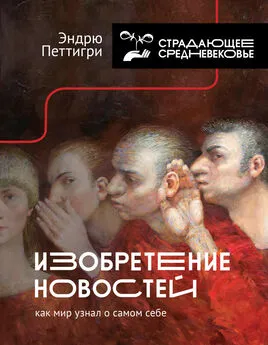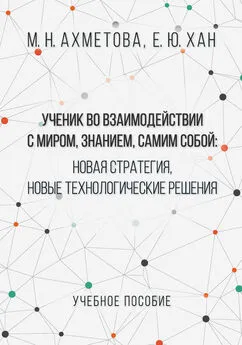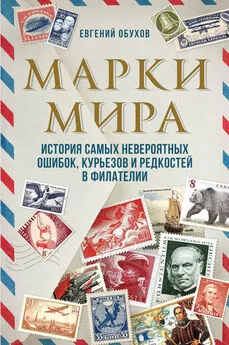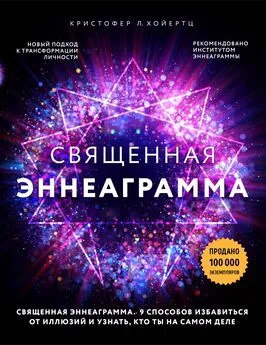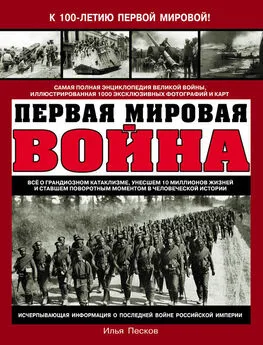Эндрю Петтигри - Изобретение новостей. Как мир узнал о самом себе
- Название:Изобретение новостей. Как мир узнал о самом себе
- Автор:
- Жанр:
- Издательство:АСТ
- Год:2021
- Город:Москва
- ISBN:978-5-17-127024-7
- Рейтинг:
- Избранное:Добавить в избранное
-
Отзывы:
-
Ваша оценка:
Эндрю Петтигри - Изобретение новостей. Как мир узнал о самом себе краткое содержание
Автор охватывает период почти в четыре века — от допечатной эры до 1800 года, от конца Средневековья до Французской революции, детально исследуя инстинкт людей к поиску новостей и стремлением быть информированными. Перед читателем открывается увлекательнейшая панорама столетий с поистине мульмедийным обменом, вобравшим в себя все доступные средства распространения новостей — разговоры и слухи, гражданские церемонии и торжества, церковные проповеди и прокламации на площадях, а с наступлением печатной эры — памфлеты, баллады, газеты и листовки. Это фундаментальная история эволюции новостей, начиная от обмена манускриптами во времена позднего Средневековья и до эры триумфа печатных СМИ.
В формате PDF A4 сохранен издательский макет.
Изобретение новостей. Как мир узнал о самом себе - читать онлайн бесплатно ознакомительный отрывок
Интервал:
Закладка:
Выше в главе 10.
650
Leo Noordegraaf and Gerrit Valk, De Gave Gods: De pest in Holland vanaf de late Middeleeuwen, 2nd edn (Amsterdam: Bakker, 1996); Cunningham and Grell, Four Horsemen , Chapter 5.
651
Claire Tomalin, Samuel Pepys (London: Viking, 2002), pp. 227-35.
652
Steven Shapin, A Social History of Truth: Civility and Science in Seventeenth-Century England (Chicago, IL: University of Chicago Press, 1994).
653
Выше, глава 1. О понятиях чести в новостях: David Randall, Credibility in Elizabethan and Early Stuart Military News (London: Pickering & Chatto, 2008). C.f. Shapin, Social History of Truth, pp. 65-125.
654
James Shirley, Love Tricks or the School of Complement, quoted Jayne E. E. Boys, London’s News Press and the Thirty Years War (Woodbridge: Boydell, 2011), p. 170.
655
Stephen J. A. Ward, The Invention of Journalism Ethics (Montreal: McGill University Press, 2004), p. 119.
656
20 October 1631, STC 18507.227; Boys, London News Press , p. 175.
657
Boys, London News Press , p. 171.
658
Там же, с. 170.
659
Ben Jonson, A Staple of News , Act I, scene 4, lines 10–11.
660
Massimo Petta, ‘Wild Nature and Religious Readings of Events: Natural Disaster in Milanese Printed Reports (16th-17th Century)’, in Bo-Jan Borstner et al. (eds), Historicizing Religion: Critical Approaches to Contemporary Concerns (Pisa: PLUS-Pisa University Press, 2010), pp. 199–231.
661
Ahasver Fritsch, Discursus de Novellarum, quas vocant Neue Zeitungen, hodierno usu et abusu (1676); Otto Groth, Die Geschichte der Deutschen Zeitungswissenschaft (Munich: Weinmayer, 1948), p. 15. Elger Bluhm and Rolf Engelsing (eds), Die Zeitung. Deutsche Urteile und Dokumente von den Anfangen bis zur Gegenwart (Bremen: Schunemann, 1967).
662
Johann Ludwig Hartman, Unzeitige Neue Zeitungs-sucht (Rotenburg: Lipfi, 1679).
663
Daniel Hartnack, Erachten von Einrichtung der Alten Teutsch und Neuen Europaischen Historien (Hamburg: Zelle, 1688).
664
Kaspar Stieler, Zeitungs Lust und Nutz (Hamburg: Schiller, 1695), quoted Groth, Geschichte, p. 19.
665
Jeremy Popkin, ‘New Perspectives on the Early Modern European Press’, in Joop W. Koopmans, News and Politics in Early Modern Europe (1500–1800) (Louvain: Peeters, 2005), pp. 127, here p. 10.
666
Mark Knights, Representation and Misrepresentation in Later Stuart Britain: Partisanship and Political Culture (Oxford: Oxford University Press, 2005).
667
William B. Ewald, The Newsmen of Queen Anne (Oxford: Basil Blackwell, 1956), pp. 14–15.
668
Tatler, no. 178, quoted Ewald, Newsmen, p. 15.
669
The Spectator , no. 452, quoted Ewald, Newsmen , p. 15.
670
Johannes Weber, ‘Strassburg 1605: The Origins of the Newspaper in Europe’, German History , 24 (2006), p. 393.
671
Daily Courant, 11 March 1702, quoted Ewald, Newsmen, p. 14.
672
Brendan Dooley, The Social History of Skepticism: Experience and Doubt in Early Modern Culture (Baltimore, MD: Johns Hopkins University Press, 1999), p. 129.
673
Stieler, Zeitungs Lust und Nutz, quoted Popkin, ‘New Perspectives’, p. 11.
674
Ward, The Invention of Journalism Ethics , p. 124.
675
Ниже, глава 16.
676
C. John Sommerville, The News Revolution in England: Cultural Dynamics of Daily Information (Oxford: Oxford University Press, 1996), pp. 132-3.
677
John Brewer and Roy Porter, Consumption and the World of Goods (London: Routledge, 1993).
678
David A. Kronick, A History of Scientific and Technical Periodicals (Methuen, NJ: Scarecrow, 1976).
679
Margery Purver, The Royal Society: Concept and Creation (Cambridge, MA: MIT University Press, 1967); Steven Shapin, A Social History of Truth: Civility and Science in Seventeenth-Century England (Chicago, IL: University of Chicago Press, 1994).
680
David A. Kronick, ‘Notes on the Printing History of the Early Philosophical Transactions’, in his ‘Devant le deluge’ and Other Essays on Early Modern Scientific Communication (Oxford: Scarecrow, 2004), pp. 153-79, here p. 164.
681
Ниже, глава 18.
682
Jack R. Censer, The French Press in the Age of Enlightenment (London: Routledge, 1994).
683
James Sutherland, The Restoration Newspaper and its Development (Cambridge: Cambridge University Press, 1986), Chapter 3: ‘Country News’.
684
Gilbert D. McEwen, The Oracle of the Coffee House: John Dunton’s Athenian Mercury (San Marino, CA: Huntington Library, 1972); Helen Berry, Gender, Society and Print Culture in Late Stuart England: The Cultural World of the ‘Athenian Mercury’ (Aldershot: Ashgate, 2003); C. John Sommerville, The News Revolution in England: Cultural Dynamics of Daily Information (Oxford: Oxford University Press, 1996), pp. 103-9.
685
McEwen, Oracle, pp. 113-40.
686
From the Athenian Mercury of respectively 9 June, 18 April and 14 April 1691; Sommerville, News Revolution , pp. 106-7.
687
Robert J. Allen, The Clubs of Augustan London (Hamden, CT: Archon, 1967), pp. 189–229.
688
Monique Vincent, Mercuregalant. Extraordinaire affaires du temps. Table analytique (Paris: Champion, 1998); Jean Sgard, ‘La multiplication des periodiques’, in Histoire de l’edition frangaise. II: Le livre triomphant, 1660–1830 (Paris: Promodis, 1984), pp. 198–205.
689
Richmond P. Bond, Tatler: The Making of a Literary Journal (Cambridge, MA: Harvard University Press, 1972). For this and what follows, Alvin Sullivan (ed.), British Literary Magazines: The Augustan Age and the Age of Johnson, 1698–1788 (Westport, CT: Greenwood Press, 1983).
690
Charles A. Knight, A Political Biography of Richard Steele (London: Pickering & Chatto, 2009).
691
Ниже, глава 14.
692
Erin Mackie (ed.), The Commerce of Everyday Life: Selections from the Tatler and the Spectator (Boston, MA: Bedford/St. Martin’s, 1998).
693
Tatler, 6 April 1710; Mackie, Commerce of Everyday Life, pp. 58-9.
694
Sullivan, British Literary Magazines, pp. 113-19; J. A. Downie, Jonathan Swift, Political Writer (London: Routledge, 1985).
695
C. Lennart Carlson, The First Magazine: A History of the Gentleman’s Magazine (Providence, RI: Brown, 1938); Sullivan, British Literary Magazines, pp. 136-40.
696
P. J. Buijnsters, Spectoriale geschriften (Utrecht: HES, 1991); idem, ‘Bibliographie des periodiques rediges selon le modele des Spectateurs’, in Marianne Couperus (ed.), L’etude des periodiques anciens. Colloque d’Utrecht (Paris: Nizet, 1972), pp. 111-20; Dorothee Sturkenboom, Spectators van de hartstocht: sekte en emotionele cultuur in de achttiende eeuw (Hilversum: Verloren, 1998).
697
Sgard, ‘Multiplication des periodiques’, p. 204.
698
Jeremy D. Popkin, ‘The Business of Political Enlightenment in France, 1770–1800’, in John Brewer and Roy Porter (eds), Consumption and the World of Goods (London: Routledge, 1993), p. 413.
699
Sgard, ‘Multiplication des periodiques’, p. 200.
700
Robert Darnton, The Forbidden Bestsellers of Pre-Revolutionary France (New York: Norton, 1995).
701
Berry, Gender, Society and Print Culture ; Bertha-Monica Stearns, ‘The First English Periodical for Women’, Modern Philology, 28 (1930-1), pp. 45–59; Sommerville, News Revolution , p. 105.
702
Kathryn Shevelow, Women and Print Culture: The Construction of Femininity in the Early Periodical (London: Routledge, 1989).
703
Там же, с. 149.
704
Olwen Hufton, The Prospect before Her: A History of Women in Western Europe, 1500–1800 (London: HarperCollins, 1995), p. 455.
705
Censer, French Press in the Age of Enlightenment , pp. 88, 99.
706
Susan Broomhall, Women and the Print Trade in Sixteenth-Century France (Aldershot: Ashgate, 2002); Jef Tombeur, Femmes & metiers du livre (Soignies: Talus d’approche, 2004); Maureen Bell, ‘Women in the English Book Trade, 1557–1700’, Leipziger Jahrbuch, 6 (1996); Helen Smith, ‘Grossly Material Things’: Women and Book Production in Early Modern England (Oxford: Oxford University Press, 2012).
707
Wolfgang Behringer, Thurn und Taxis. Die Geschichte ihrer Post und ihrer Unternehmen (Munich: Piper, 1990), pp. 87–90; Nadine Akkerman, ‘The Postmistress, the Diplomat and a Black Chamber?: Alexandrine of Taxis, Sir Balthazar Gerbier and the Power of Postal Control’, in Robyn Adams and Rosanna Cox (eds), Diplomacy and Early Modern Culture (Basingstoke: Palgrave, 2011), pp. 172-88.
708
For Meyer, see Выше в главе 9.
709
Ниже, глава 15.
710
Eliza Haywood, The Female Spectator , ed. Gabrielle M. Firmager (Melksham: Bristol Classical Press, 1993); Sullivan, British Literary Magazines , pp. 120-3; see also Alison Adburgham, Women in Print: Writing Women and Women’s Magazines from the Restoration to the Accession of Victoria (London: George Allen & Unwin, 1972); J. Hodges, ‘The Female Spectator’, in Richmond P. Bond (ed.), Studies in the Early English Periodical (Westwood, CT: Greenwood Press, 1957), pp. 151-82.
711
Firmager, Female Spectator, p. 10. Finny Bottinga, ‘Eliza Haywood’s Female Spectator and its Dutch Translation De Engelsche Spectatrice ’, in Suzan van Dijk et al. (eds), ‘I have heard of you’: Foreign Women’s Writing Crossing the Dutch Border (Hilversum: Verloren, 2004), pp. 217-24.
Читать дальшеИнтервал:
Закладка:
